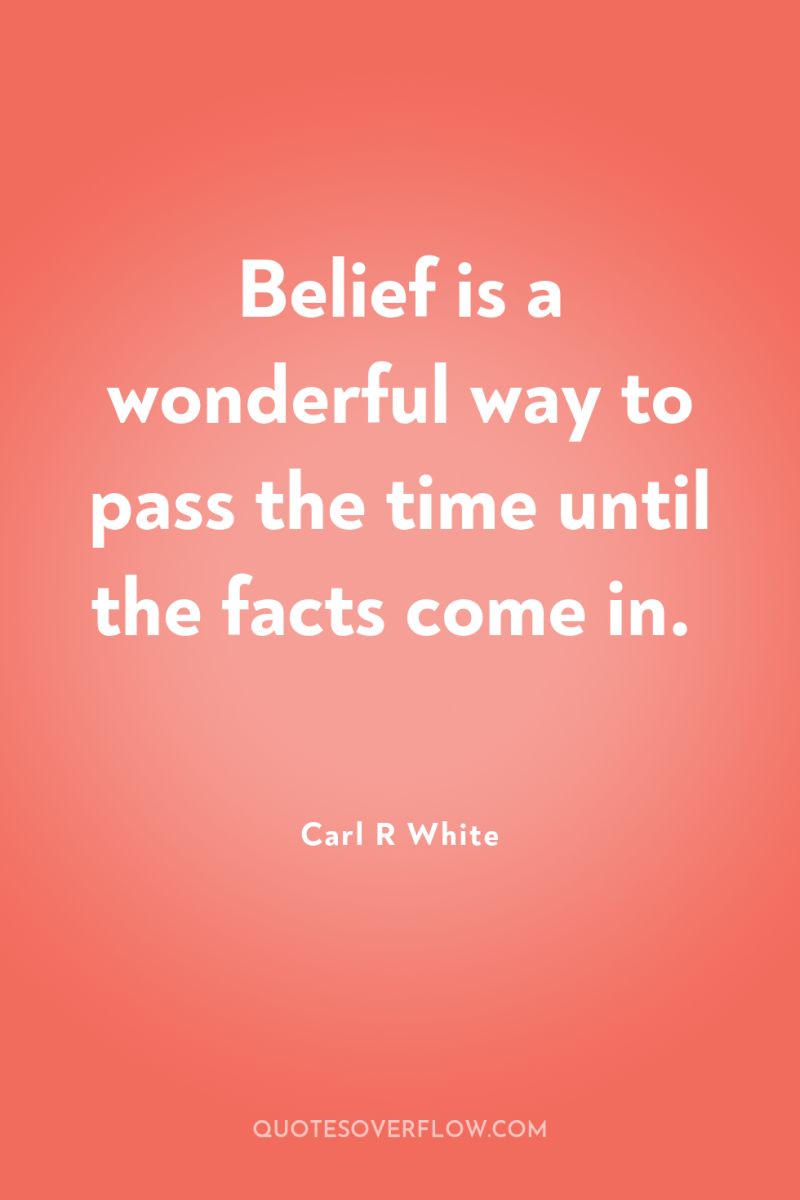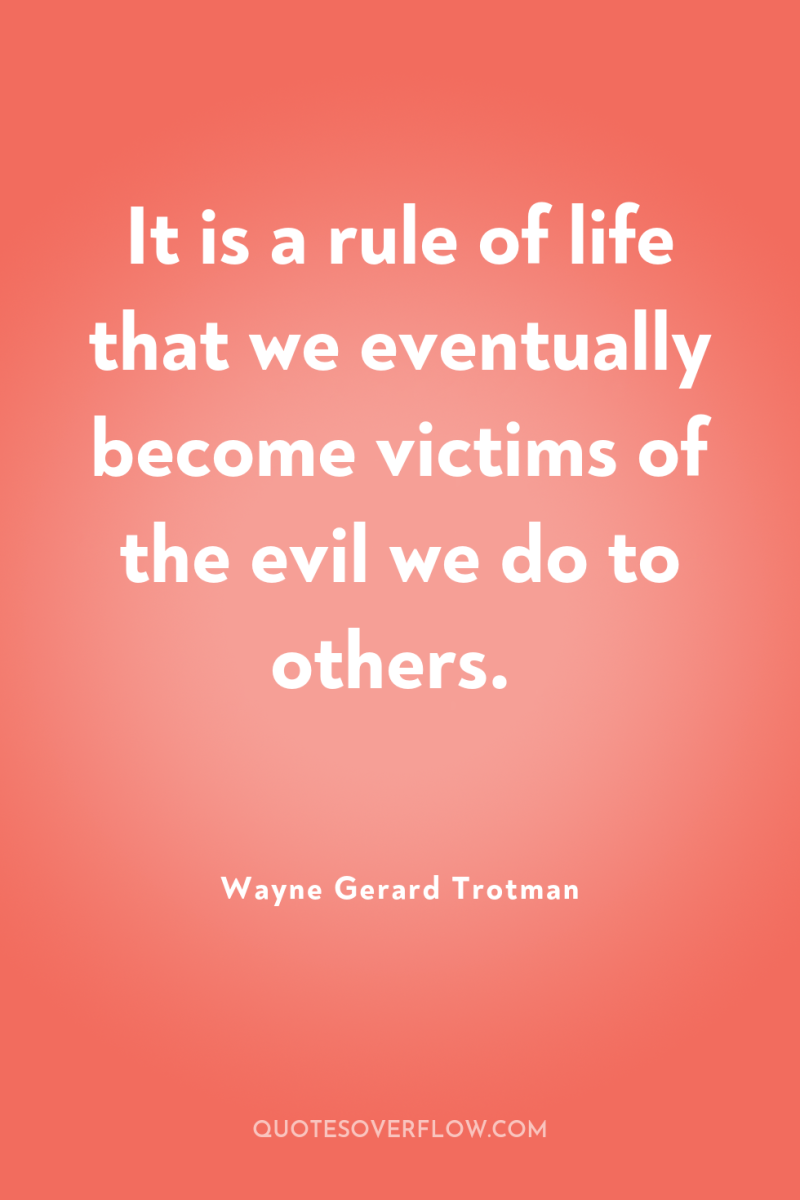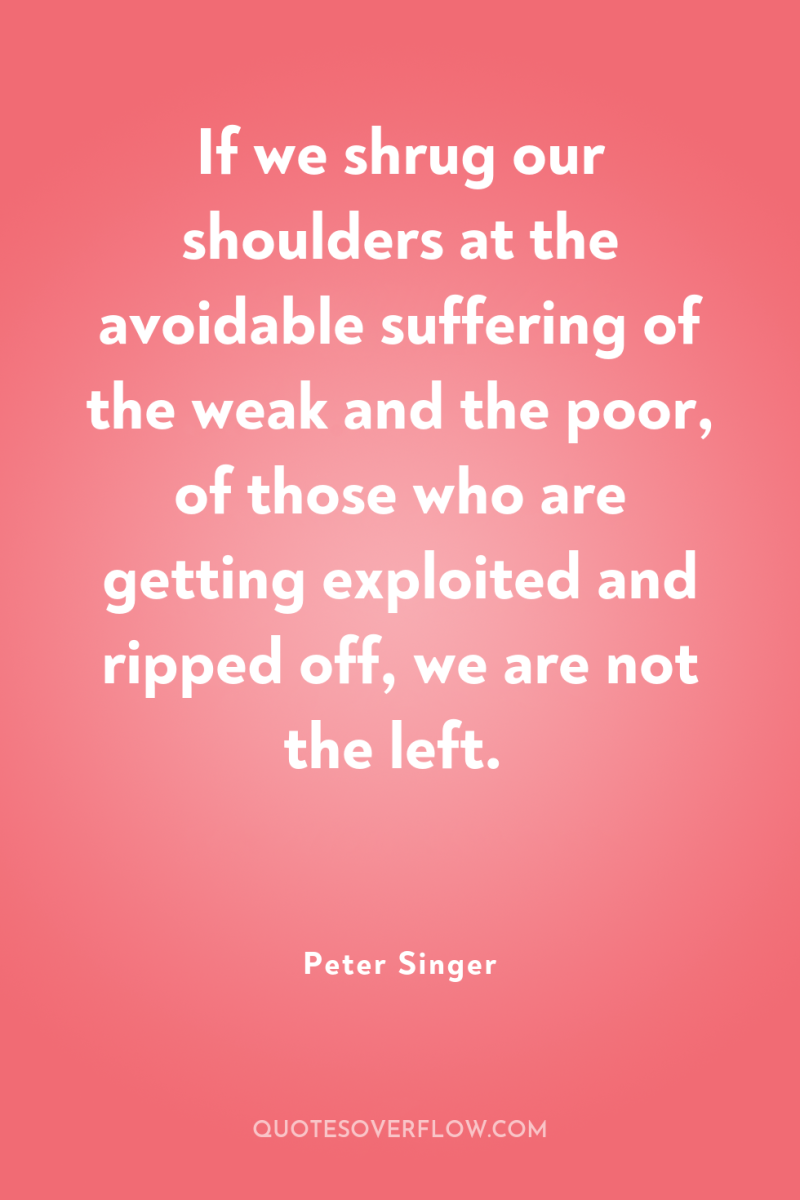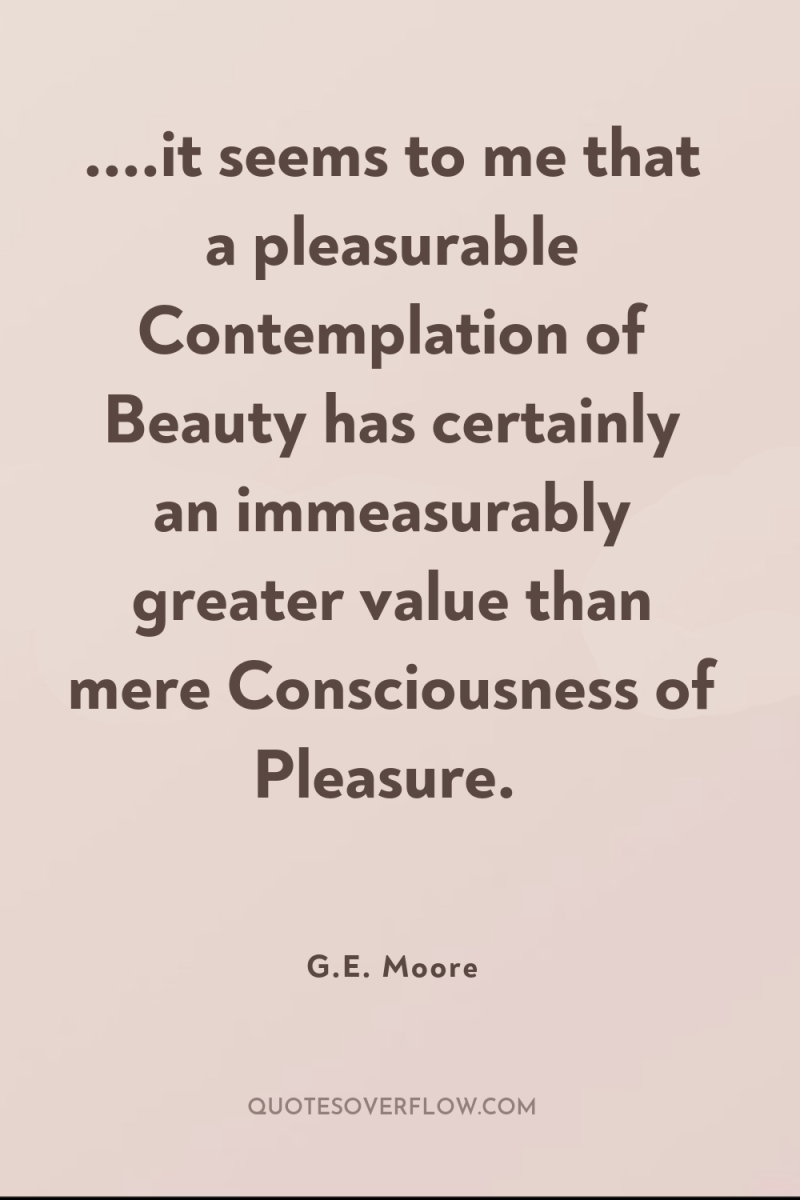1
The creed which accepts as the foundation of morals, Utility, or the Greatest-Happiness Principle, holds that actions are right in proportion as they tend to promote happiness, wrong as they tend to produce the reverse of happiness. By happiness is intended pleasure, and the absence of pain; by unhappiness, pain, and the privation of pleasure.John Stuart Mill

2
The good which every man, who follows after virtue, desires for himself he will also desire for other men...Baruch Spinoza

3
Belief is a wonderful way to pass the time until the facts come in.Carl R White
4
Someone once said to me, 'There are so many religions in the world. They can't all be right.' And my reply was, 'Well, they can't all be wrong either.' All religions in the world today share more commonalities than differences, yet language blinds many from seeing these truths. Some people will tell me that what I write about is straight from their holy book, but the truth is that the main principles found in all holy books were already engraved in all our hearts. If you think common sense, the golden rule and knowing right from wrong are exclusive only to your faith, then you need to open yourself up to the rest of the world's religions. .Suzy Kassem

5
It is a rule of life that we eventually become victims of the evil we do to others.Wayne Gerard Trotman
6
If we can use an H-bomb--and as you said it's no checker game; it's real, it's war and nobody is fooling around--isn't it sort of ridiculous to go crawling around in the weeds, throwing knives and maybe getting yourself killed . and even losing the war . when you've got a real weapon you can use to win? What's the point in a whole lot of men risking their lives with obsolete weapons when one professor type can do so much more just by pushing a button?' Zim didn't answer at once, which wasn't like him at all. Then he said softly, 'Are you happy in the Infantry, Hendrick? You can resign, you know.' Hendrick muttered something; Zim said, 'Speak up! ' I'm not itching to resign, sir. I'm going to sweat out my term.' I see. Well, the question you asked is one that a sergeant isn't really qualified to answer . and one that you shouldn't ask me. You're supposed to know the answer before you join up. Or you should. Did your school have a course in History and Moral Philosophy?'What? Sure--yes, sir.' Then you've heard the answer. But I'll give you my own--unofficial--views on it. If you wanted to teach a baby a lesson, would you cuts its head off?' Why . no, sir! ' Of course not. You'd paddle it. There can be circumstances when it's just as foolish to hit an enemy with an H-Bomb as it would be to spank a baby with an ax. War is not violence and killing, pure and simple; war is controlled violence, for a purpose. The purpose of war is to support your government's decisions by force. The purpose is never to kill the enemy just to be killing him . . but to make him do what you want him to do. Not killing . . but controlled and purposeful violence. But it's not your business or mine to decide the purpose of the control. It's never a soldier's business to decide when or where or how--or why--he fights; that belongs to the statesmen and the generals. The statesmen decide why and how much; the generals take it from there and tell us where and when and how. We supply the violence; other people--"older and wiser heads, " as they say--supply the control. Which is as it should be. That's the best answer I can give you. If it doesn't satisfy you, I'll get you a chit to go talk to the regimental commander. If he can't convince you--then go home and be a civilian! Because in that case you will certainly never make a soldier.Robert A. Heinlein

7
If we shrug our shoulders at the avoidable suffering of the weak and the poor, of those who are getting exploited and ripped off, we are not the left.Peter Singer

8
....it seems to me that a pleasurable Contemplation of Beauty has certainly an immeasurably greater value than mere Consciousness of Pleasure.G.E. Moore
9
...fiction is as useful as truth, for giving us matter, upon which to exercise the judgment of value.G.E. Moore
10
If 10 percent of the population were to take a consciously ethical outlook on life and act accordingly, the resulting change would be more significant than any change of government,Peter Singer
11
For though men be ignorant, yet they are menBaruch Spinoza
12
To say that life is meaningless is to express an attitude, not to state a factPeter Singer
13
A majority of people in these surveys also said that America gives too much aid--but when they were asked how much America should give, the median answers ranged from 5 percent to 10 percent of government spending. In other words, people wanted foreign aid 'cut' to an amount five to ten times greater than the United States actually gives!Peter Singer
14
Morality does not come to this mortal world from some imaginary paradise. It rises from the neurons of mortal humans.Abhijit Naskar
15
Morality exists in the neurons as a natural sensation. Religion only tries to codify it.Abhijit Naskar
16
Hatred is increased by being reciprocated, and can on the other hand be destroyed by love.Baruch Spinoza
17
I will call no being good who is not what I mean when I apply that epithet to my fellow creatures; and if such a creature can sentence me to hell for not so calling him, to hell I will go .John Stuart Mill
18
Morality does not come from a book, it comes from the human mind.Abhijit Naskar
19
Egoism holds, therefore, is that each man's happiness is the sole good--that a number of different things are each of them the only good thing there is--an absolute contradiction! No more complete and thorough refutation of any theory could be desired.G.E. Moore
20
If i am asked 'what is good? my answer is that good is good, and that is the end of the matter. Or if I am asked 'How is good to be defined?' my answer is that it cannot be defined, and that is all I have to say about itG.E. Moore
21
...if good is defined as something else, it is then impossible either to prove that any other definition is wrong or even to deny such definition.G.E. Moore
22
Good, then, is indefinable....G.E. Moore
23
For it is the business of Ethics, I must insist, not only to obtain true results, but also to find valid reasons for them.G.E. Moore
24
We must not, therefore, be frightened by the assertion that a thing is natural into the admission that it is good; good does not, by definition, mean anything that is natural; and it is therefore always an open question whether anything that is natural is good.G.E. Moore
25
Nature has placed mankind under the governance of two sovereign masters, pain and pleasure. It is for them alone to point out what we ought to do, as well as to determine what we shall do. On the one hand the standard of right and wrong, on the other the chain of causes and effects, are fastened to their throne. They govern us in all we do, in all we say, in all we think: every effort we can make to throw off our subjection, will serve but to demonstrate and confirm it. In words a man may pretend to abjure their empire: but in reality he will remain subject to it all the while. The principle of utility recognizes this subjection, and assumes it for the foundation of that system, the object of which is to rear the fabric of felicity by the hands of reason and of law. Systems which attempt to question it, deal in sounds instead of sense, in caprice instead of reason, in darkness instead of light. .Jeremy Bentham
26
Was the excellence of Socrates or of Shakespeare normal? Was it not rather abnormal, extraordinary? It is, I think, obvious in the first place, that not all that is good is normal; that, on the contrary, the abnormal is often better than the normal...G.E. Moore
27
One’s love for his country is a very sacred emotion that is intertwined with their sense of moral obligation and is an essential part of one’s identity.Aysha Taryam
28
Justice is the first virtue of social institutions, as truth is of systems of thought.John Rawls
29
There is no middle ground for moral choice and political decision because by being on a safe side, any indecisive act poses a moral hazard to the individual freedom and integrity of a democratic society.~ Danny Castillones Sillada, The Postmodern Filipino Prince: The Moral Hazard of Political IndecisionDanny Castillones Sillada
30
What now matters most is how we respond to various risks to the survival of humanity. We are creating some of these risks, and discovering how we could respond to these and other risks. If we reduce these risks, and humanity survives the next few centuries, our descendants or successors could end these risks by spreading through this galaxy. Life can be wonderful as well as terrible, and we shall increasingly have the power to make life good. Since human history may be only just beginning, we can expect that future humans, or supra-humans, may achieve some great goods that we cannot now even imagine. In Nietzsche’s words, there has never been such a new dawn and clear horizon, and such an open sea. If we are the only rational beings in the Universe, as some recent evidence suggests, it matters even more whether we shall have descendants or successors during the billions of years in which that would be possible. Some of our successors might live lives and create worlds that, though failing to justify past suffering, would give us all, including some of those who have suffered, reasons to be glad that the Universe exists.Derek Parfit
31
It is impossible to conceive anything at all in the world, or even out of it, which can be taken as good without qualification, except a good will.Immanuel Kant
32
Inexperienced in the course of world affairs and incapable of being prepared for all the chances that happen in it, I ask myself only 'Can you also will that your maxim should become a universal law?' Where you cannot it is to be rejected...Immanuel Kant
33
What is more, we cannot do morality a worse service than by seeing to derive it from examples. Every example of it presented to me must first itself be judged by moral principles in order to decide if it is fit to serve as an original example...even the Holy One of the gospel must first be compared with our ideal of moral perfection before we can recognize him to be such.Immanuel Kant
34
[It] is nevertheless better than the theological concept, of deriving morality from a divine, all-perfect will, not merely because we do not intuit this perfection, but can derive it solely from our concepts, of which morality is the foremost one, but because if we do not do this (which, if we did, would be a crude circle in explanation), the concept of his will that is left over to us, the attributes of the desire for glory and domination, bound up with frightful representations of power and vengeance, would have to make a foundation for a system of morals that is directly opposed to morality.Immanuel Kant
35
...in its practical purpose the footpath of freedom is the only one on which it is possible to make use of reason in our conduct. Hence it is as impossible for the subtlest philosophy as for the commonest reasoning to argue freedom away.Immanuel Kant
36
The ordinary man so very rarely questions the principles in which he has been brought up, that he is usually willing, whenever he has a feeling that he ought to do 'x', to say on this ground that he ought to do 'x'.R.M. Hare
37
...our ultimate moral principles can become so completely accepted by us, that we treat them, not as universal imperatives but as matters of fact; they have the same obstinate indubitability.R.M. Hare
38
Some of the conclusions that I draw are very different from the ethical views most people hold today. That, however, is not a ground for dismissing them. If every proposal for reform in ethics that differed from accepted moral views had been rejected for that reason alone, we would still be torturing heretics, enslaving members of conquered races, and treating women as the property of their husbands.Peter Singer
39
Just as we will spend large sums to preserve cities like Venice, even though future generations conceivably may not be interested in such architectural treasures, so we should preserve wilderness even though it is possible that future generations will care little for it.Peter Singer
40
There are some things that, once lost, no amount of money can regain. Thus to justify the destruction of an ancient forest on the grounds that it will earn us substantial export income is problematic, even if we could invest that income and increase its value from year to year; for no matter how much we increase its value, its could never buy back the link with the past represented by the forest.Peter Singer
41
If indeed good were a feeling....then it would exist in time. But that is why to call it so is to commit the naturalistic fallacy. It will always remain pertinent to ask, whether the feeling itself is good; and if do, then good cannot itself be identical with any feeling.G.E. Moore
42
Putting yourself in the place of others...is what thinking ethically is all about.Peter Singer
43
…if geometry were as much opposed to our passions and present interests as is ethics, we should contest it and violate I but little less, notwithstanding all the demonstrations of Euclid and Archimedes…Gottfried Wilhelm Leibniz
44
Men, in so far as they live in obedience to reason necessarily do only such things as are necessarily good for human nature, and consequently for each individual man.Baruch Spinoza
45
...moral relativism, a position many find attractive only until they are faced with someone who is doing something really, really wrong.Peter Singer
46
Thus we find that the unconditioned condition of the goodness of anything is rational nature... To play this role, however, rational nature must itself be something of unconditional value--and end in itself.Christine M. Korsgaard
47
Their reliance on biblical quotations does not augur well for their for their openness to moral reasoning....Peter Singer
48
If you view yourself as having a value-conferring status in virtue of of your power of rational choice, you must view anyone who has the power of rational choice as having...a value conferring status.Christine M. Korsgaard
49
[A} maxim's legal character must be intrinsic: it must have what I shall call 'lawlike form.' this is why legal character, or universality, must be understood as lawlike form, that is, as a requirement of universalizability.Christine M. Korsgaard
50
There are people dying from famine on the roads, and you do not issue the stores of your granaries for them. When people die, you say, 'it is not owing to me, it is owing to the year.' In what does this differ from stabbing a man and killing him, and then saying, 'it was not I, it was the weapon?Mencius
51
What was civilization ever, really, but the attempt by man to talk himself into being good?Unknown
52
Thus he has two standpoints from which he can consider himself...: first, as belonging to the world of sense, under the laws of nature (heteronomy), and, second, as belonging to the intelligible world under laws which, independent of nature, are not empirical but founded only on reason.Immanuel Kant